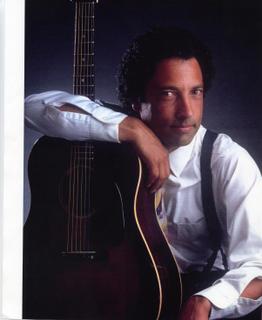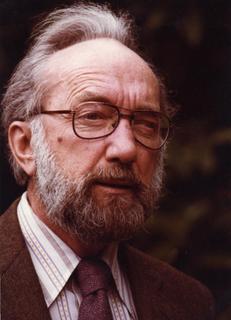
There is a greater magic than what was experienced ...
during the life-changing decades of the late 60s, 70s and 80s. Those years represent an example of the extraordinary challenges and events of one ordinary woman's life. When left free to roam, my mind is very selective in what it nudges back into consciousness. On closer look, I'm aware of the many-layered existence I was living in those years. The mother in me continued to be active and the aware of just where each of my children was in time and space. That was always bubbling just beneath the surface. There were frequent visits to The Cedars to visit with Dorian, even during those high times in Academia. There was a very deliberate letting go of my boys -- very much a conscious effort -- and sometimes costly, emotionally. Feeling the guilt of finding happiness without them, even while I yearned for the life we'd shared in those early years. Constant worry about Rick, my "trouble child." Wonderings about the sensitive poet, Bob, who was so much my child, and wondering whether his wanderlust would ever be satisfied enough for him to embrace adulthood? All the while hoping that he would keep enough of the child-poet alive and productive. And would he find the balances between those poles?
And all the while -- for all of those years -- I needed to keep enough of the faithful daughter alive to assume the care of my aging parents. My father spent his last ten years blind and bedridden -- died at 95 in 1987 after a productive life. Mother lived to be 101, passing on in 1995 after Bill and I were no longer married and I'd gone through yet another metamorphosis and into a life of single independent woman. Through assuming the running of two households with the help of Lou (a wonderful practical nurse and caretaker who loved them almost as much as I), I managed to do it all. But the real challenges were yet to unfold.
My marriage to Bill lasted ten years, and ended with his continuing personal journey into Tibetan Buddhism. We'd divorced as agreed, but the reasons were not nearly as clean and imaginative as we'd planned. The demands upon my time by family obligations had eaten into our times together. He was involved in world travel that I could never be free enough to participate in. The carryover obligations -- his to two older sisters (who were appalled at his having married a woman of color!) -- and mine to my parents and kids -- took their toll. The research project eventually ended and evaluation completed. Our lives together rachetted down to a more normal level, and I became less and less enamored with university life. But not before we'd had years of rich cultural and social lives that embraced the changing world whole-heartedly. I'd crowded a quarter-century into a single decade of existence. I'd had a decade of being both a wife and "only child" to a man some 6 years older than I, and who'd never been a father.
My life in the suburbs had ended abuptly as I became increasingly captivated by my new life of the university. I became increasingly political and less and less involved in my music and writings. Those intellectual giants I'd come to know so well turned out to be not unlike all the "regullah" people I knew. They were the worried parents of many of those young rebels wandering the Haight-Ashbury in tie-dyed garments and floral wreathes. There was alcoholism and drug abuse -- often well-hidden. There were as many troubled wives and philandering husbands as I'd known elsewhere in life. There were petty jealousies that I've never have imagined possible in anyone who'd reached that level of academic achievement. That world was peopled by the same kinds of folks I'd always known. There was far less variation despite social, economic, and educational levels. The differences seemed to be that in the world of the Academy, there were many more people who knew a great deal about a highly specialized area of life, and otherwise -- were as human as the rest of us. It was more of a learning experience than I might have imagined, and prepared me well for the next decade when I would find myself having to adjust to the world of a welfare community -- primarily African-American -- where our store was located -- and where I would soon find myself living most of my daytime life as a "Black Merchant Social Activist."
Once there, and armed by the campus experience, I was able to see youngsters deep in the drug trade -- not as "King Pins," but as Mother Johnson's grandson, and Mrs. Brown's nephew. Seeing the humanity in campus life as apart from the life roles we chose for ourselves, enabled me to see those who lived near our store outside their roles, as well. and to quickly find my way into that world.
Maybe the beginning of that was having learned to separate Billy Sosinski from the impressive persona that Dr. William F Soskin had created for himself. I loved them both. Unfortunately, Bill never did. He spent a lifetime over-achieving -- in the effort to prove himself. He provided a prism through which I could see almost as much as the insights he claimed through his spiritual practices. Or at least that's how it seemed. I learned never to let on that I could see his Billy self, but he was there behind that huge shadow cast by his alter ego, always.
Wrote my last song early in my relationship with Bill:
He was busy in the downstairs library -- writing furiously on a new continuation grant application. I was upstairs in our bedroom filling in the time with my guitar. Stumbled on a musical phrase and entered the familiar altered state out of which would come new music. There was always that feeling of ecstasy -- of opening up -- then the words and music would come -- all of a piece. The newest song was always the most beautiful! As usual, in about 15 minutes it was completed. The process was less like composing, than of simply moving something out of one level of consciousness to another. Years before when this first started to happen to me, my psychiatrist describe it to me as very natural. I'd seen it as a symptom of mental illness, and feared each new event. He convinced me that it was anything but that. "Those who create provide the road that others will follow. You do not follow maps, you create them. I would prefer that you not tamper with your process with lessons and rules. Create!" It took a while, but I eventually believed him. The music continued to come. Once created, without ever being written down -- a song would remain precisely as created. Not a note or a word would change. At some later point I would tape it. I can close my eyes today and bring each song back -- whole.
On that evening -- for the first time since we met -- I was writing again. In the excitement of having produced one more "most beautiful song in the world," I picked up my guitar and ran quickly downstairs to interrupt Bill's work to be audience to this new piece.
He dutifully turned from his typewriter and gave full attention. I strummed a few chords and sang my simple song. He listened attentively then said, "that's quite lovely, dear. But when you get it polished a bit more -- I'm sure it will please you even more." I was crushed. He didn't understand at all why I was so obviously confused and disappointed. He followed up with, "...I'll call the university music department tomorrow. I'm sure that we can arrange to have you enter as a special student, if you'd like. Think of how much more satisfying it will be when you can have the pleasure of polishing and editing and working toward just the precise word required to express your thoughts...".
"But it's all there!" That's what I mean, Bill. I don't want to "polish and edit and work toward just the precise word" at all. If I tried to do that, it would turn into something else! That is what I meant in the moment this was written. The next moment will include this moment, and that would produce something quite different." I was talking nonsense, and could now see his confusion. We were ships passing in the night. He was talking about music composition. I was talking about making up songs. This I could do at the age of 8. This was the little girl who -- at about 14 read Edna St. Vincent Millay's Renascence for the first time and immediately went out to the backyard to sing it. It needed singing!
I never wrote again during our years together. But, somewhere deep inside I firmly believed that those composers in the university's music department were striving to do precisely what I seem to have been born to do. And that, maybe living inside my poet, Bobby, who listens to his Muse and refuses to be distracted -- living out that side of ME -- he's paying for it in ways I can't quite comprehend, even now. But then, maybe that's a selfish read on something that has little to do with me. Maybe -- once thrust into the world -- those genetic markings have created their own being -- offspring who make of them what they will, as stimulated by their own life processes.
There are days when I find it hard to separate myself from Bob. He carries as much of my genetic makeup as David does of Mel's. David has Mel's original steadfastness, dependability and sense of purpose. He's fatherly, even in the face of two failed marriages. Is a single father with full custody of four youngsters under his wing and a family business to run. Rick's biological mother was Irish and pre-read law books for a publishing firm in the MidWest (learned this from her bio furnished by the adoption agency). Have always suspected that he spent a lifetime battling fetal alcoholism, that his analytical mind came from this woman he'd never known. Looking at it that way, that Bob should be strumming his way through life, working with Young Audiences, working with music composition with school children fits the mold. That such a life is as complex and unpredictable is a truth I know well. It has a very different set of rewards and challenges -- unspeakable highs and devastating lows.
I remember those years of exploration with Dr. Neighbor; of the touching down into the hell of mental confusion only to spring into exultation a few hours later. One day we'll talk about all that, but neither of us has ever seemed quite ready for that conversation -- but one day we will be ... I'm sure of it. For me -- this was the road not taken. Maybe he can tell me what it's been like. I've been quietly envious of his kind of world-changing, and of his pride in the doing of it. But I've been saddened by his down places, the losses he's had to survive. And terribly proud of his accomplishments.
Photo: Son, Robert Thomas Reid, taken in my late father's tuxedo. He very thoughtfully chose to wear it to Dad's funeral rites and later gave this photo to me as a gift. Circa 1989.


